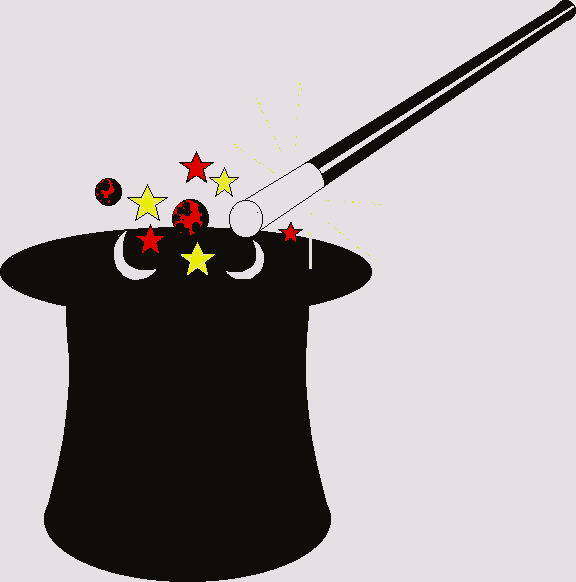Research Center
Webmaster: Anees Udyawar If you do copy some of my articles or pictures please email me and tell me where they have been placed. |
Interview: Mr. Mohammed I. Sayani
Questions
Reply: First Mr. Sayani used to work for the GE Aircraft Engines in Cincinnati, Ohio as a Maintainability Engineer from 1984 to 1994. His primary job was to perform maintainability and reliability analysis on assigned engine lines. Next he worked for the Oneil $ Associates as a Logistics Engineer from 1994-1995, his primary job there was to provide inputs to the maintenance manual, incorporating design changes, and perform maintainability and reliability analysis on assigned engine hardware and support equipment. Third he worked as a Propulsion Engineer for US Airways from 1996 to 1997, his job description there was to review vendor quality and resolving deviation, component testing and troubleshooting issues. Right now he works for Airborne Express in Wilmington, Ohio as a Designer Engineer. The most extraordinary thing about his job is that he has to travel 220 miles from his house to his work place, so he only comes home on weekends. His work there is to troubleshoot and test aircraft engines, investigate on failed component parts while coordination with other repair shops in the company. He also comments on the job to being, "Very challenging, and keeps me on the toe. Something unknown happens everyday!" He reminded me that I should have at least a Bachelors Degree in Mechanical Engineering to get applied for a minimum job position at an aerospace company, working at this position I may receive a pay of 38,000 dollars a year. However if I want to get about 56,000 dollars a year then I need to get a Masters Degree in Aeronautical Sciences. Also in high school he said to take the highest level courses one can take, like algebra, biology, chemistry, and physics. To advance to the next level one must have enough experience in the field one is applying for, his most astonishing comment to me was that some managers have lots of experience in their field, but are the worst while performing their jobs. While people with some or almost no knowledge perform best on the managerial position assigned to them. Mr. Sayani’s working condition are subtle, he works on small projects which makes him move around a lot, not only inside the company but also outside from one airfield to the next. Sometimes he gets to go inside the cockpit of an aircraft to observe various instruments and gauges; there he takes down precise information on each and every readout and then later reviews it to determine the problem. He works inside only when he has to research and look up the history of a certain airplane he is investigating on, so he can determine the problems it will face when it is flying. His working hours is usually eight to nine hours a day depending on the kind on project he is doing. Occasionally he also gets calls at night regarding problems and failures a plane is undergoing while in the air, so he has to rely and trust on the pilot to tell him what exactly he is undergoing. He then has to visualize the problem, which is taking place that very moment, and then finally he advises the pilot on what to do next. The main advantage on this job is the satisfaction of helping solve the dilemma faced by the pilot and the passengers, making an aircraft safe to travel on, and the benefits provided by the company. The benefits that are given to him are medical and life insurance, free flying for him and his family on the company’s aircraft he is working for, and 10% off on other carriers. Mr. Sayani gave me an indirect answer of 30,000 to 68,000 dollars a year, upon asking him on the pay that one can expect to receive on this job. He says that on his job he has to work on a narrow point of view, meaning that he has to be concentrating on what he is doing without worrying about the people around him. He also remarked about being more conservative than liberal, because if he messes up on some component of the plane, and then that plane crashes, the Federal Aviation Administration (FAA) will come after him and ask necessary questions regarding that incident, keeping in mind that the FAA randomly checks planes. He also has to make short time decisions, and those decisions can risk hurting people, so I assumed he has to work under high pressure dealing with all the failures and fixing them, plus knowing that somebody can get hurt even if he makes a mistake. If he had an opportunity to change his career, Mr. Sayani would go into medicine, because of its financial independence and other financial reasons. The job outlook according to him is looking good and increasing because of the job openings in National Aeronautics and Space Administration (NASA), since they launched the spacecraft that will investigate life on the planet Mars. Mr. Sayani reminded me that if I am interested in Aerospace engineer then I should go for it, but he also recommends careers in chemical, environmental and computer engineering, because they will always be on top. This interview was done at the home of the interviewee, and I had forgotten to take a tape recorder, so this written transcript is paraphrased. [Career Report 1 2 3 4 | Outline | Interview | Narrative | Bibliography ]
|
